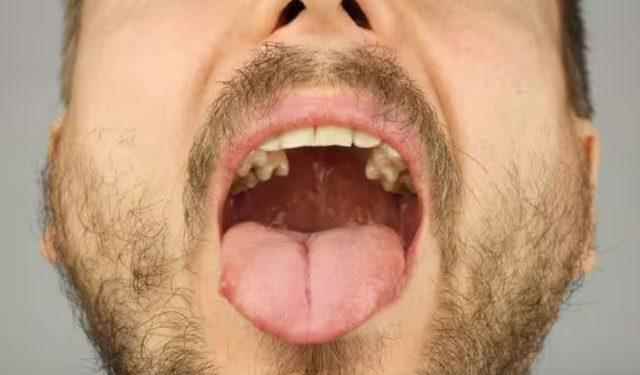A stroke means that the blood flow to the brain is suddenly cut off, causing limbs of the body to shut down. It is very difficult to intervene in a sudden stroke. The most common known symptoms of stroke are slurred speech and slow movement, but symptoms vary depending on which part of the brain is affected. Sometimes the nerve that controls the tongue is damaged, which can cause changes in the appearance of the tongue.
ATTENTION TO CHANGES IN THE LANGUAGE
Many people who have had a stroke report more common symptoms such as confusion and paralysis. Although slipped tongue is a less common symptom, it has been noticed in patients with paralysis.
The journal Biomedical Engineering Online explains: “When the tongue is elongated or protruding, it will tend to move away from the midline and deviate towards the side of the lesion.” In other words, tilting the tongue to one side or the other may indicate nerve damage from the stroke.
SLIPPED LANGUAGE IS SEEN IN STRIKE AND TRANSITIONAL ISCHEMIC AFFECTS

Biomedical Engineering Online adds: “This is called tongue deviation, so the signs of tongue slipping are seen in a stroke or transient ischemic attack.” In traditional Chinese medicine, deviation of the tongue has long been considered a warning sign of “wind strike.” In a mini-stroke, also known as a transient ischemic attack, the damage to the brain is so minor that blood flow to other areas can compensate and a full recovery occurs. However, if the hypoglossal nerve is damaged during a minor stroke, symptoms such as tongue deviation may persist.
IT ALL STARTED WHILE EATING
In 2014, the journal Stroke described the case of a 40-year-old white man with a history of transient idiopathic thrombocytopenia, a known precursor to stroke. “Four days before she presented to our emergency department, she noticed that she could not move her tongue to the left while chewing bread,” the authors said. The cause of the symptoms could not be found and the patient was referred to a neurologist for further examination. Subsequent MRI scans revealed enlargement and lengthening of the left internal carotid artery, a phenomenon medically known as dolichoectasia. The researchers suggested that the dilation may have caused compression of the hypoglossal nerve and the patient’s symptoms. The patient also reported difficulty in swallowing, possibly due to impaired motor function of the tongue.
SYMPTOMS OF PARLIAMENT
The most common symptoms of stroke are:
- numbness or loss of feeling on the right or left side of the body,
- Unilateral weakness in arm, leg and facial muscles,
- Sudden onset of severe headache
- Loss of consciousness, fainting and sudden fall,
- Defect of vision,
- Difficulty speaking or not understanding spoken words
- Impaired gait, loss of balance and falling,
- Can’t hold your toilet.
